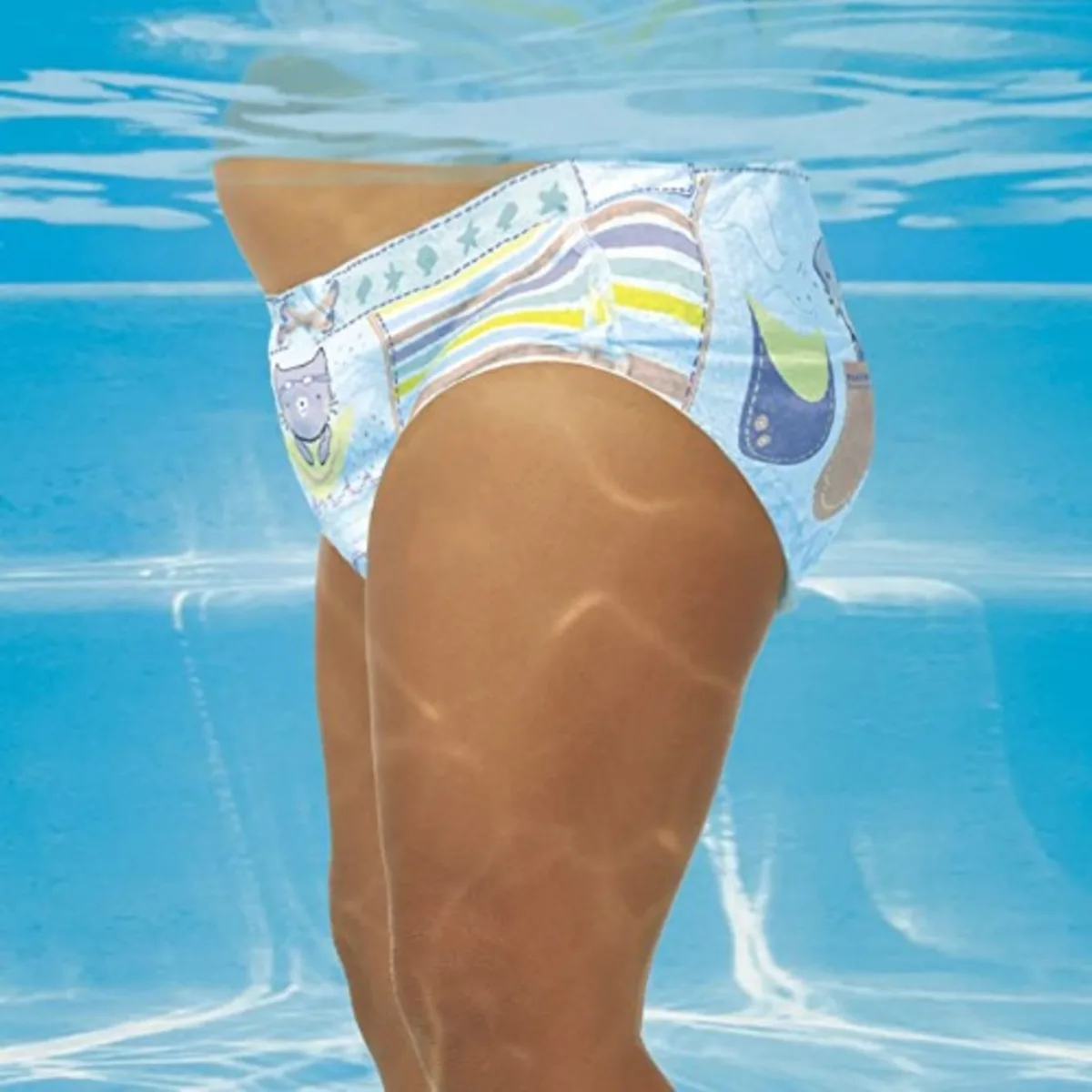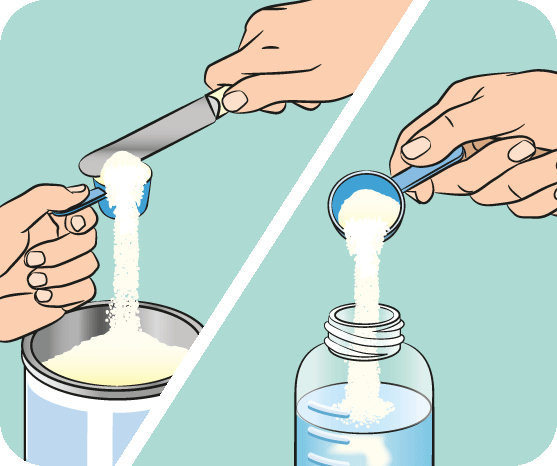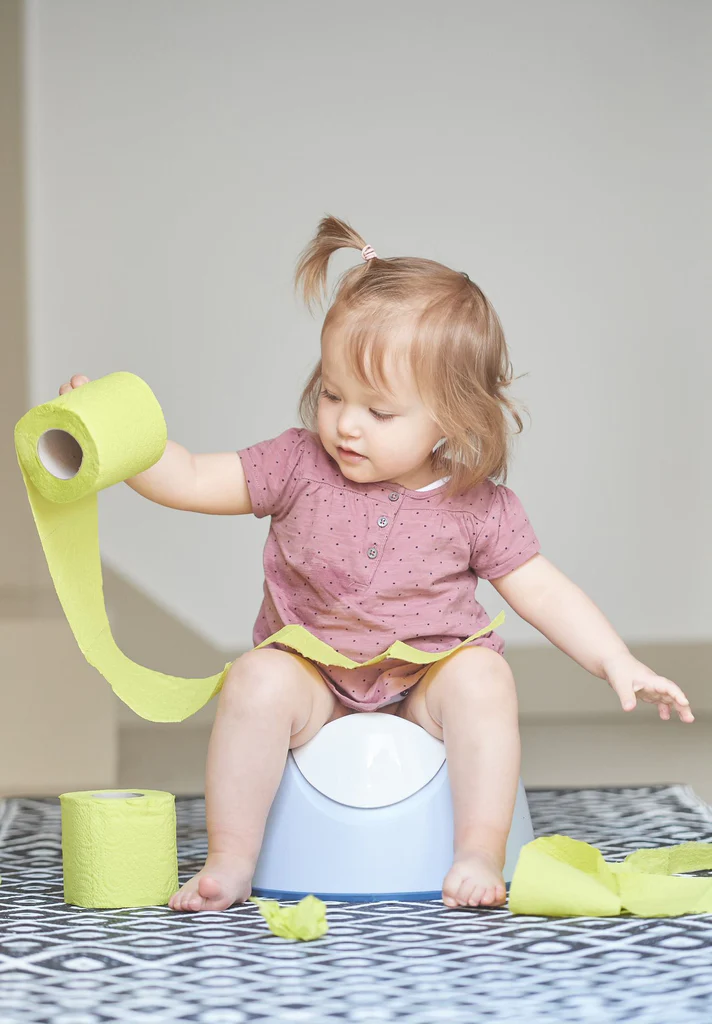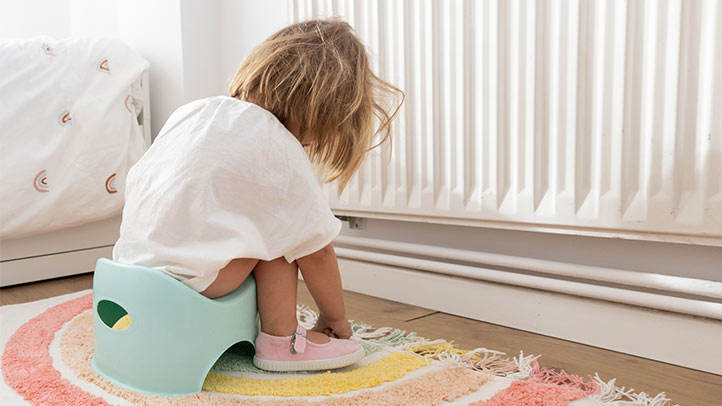Making a Splash: A Guide to Baby Swim Diapers
Taking your little one swimming is a fantastic way to bond, create lasting memories, and introduce them to the joys of water. But before you dive in, there’s an essential item to consider: a baby swim diaper. Unlike regular diapers, swim diapers are designed for use in the water. This article explores the world of baby swim diapers, helping you choose the right one for your little swimmer.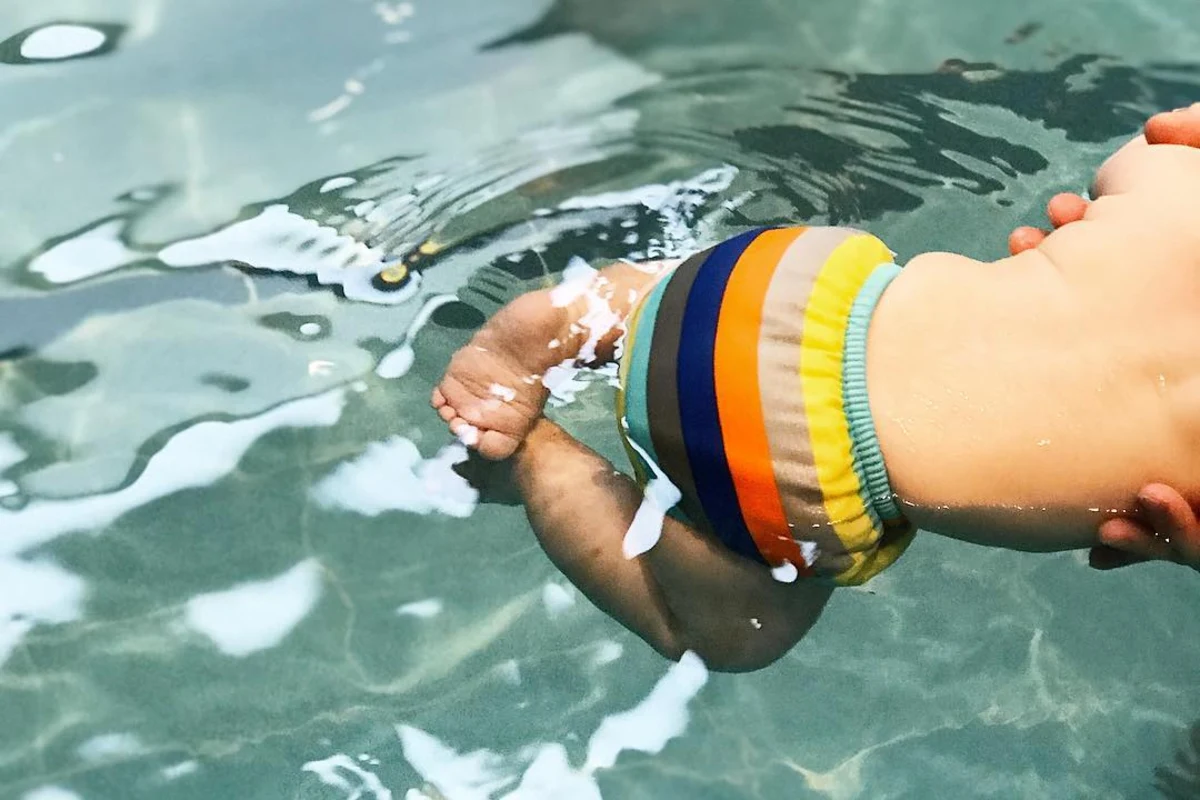
Why Use a Swim Diaper? Regular Diapers Don’t Belong in the Pool
Regular diapers are not suitable for swimming. Here’s why:
- Absorption Overload: Regular diapers absorb water, becoming bulky and uncomfortable for your baby.
- Leakage Issues: The absorbent material in regular diapers can leak fecal matter in water, which can be unsanitary for pools and public swimming areas.
- Environmental Impact: Disposable swim diapers leaking solid waste can contribute to pool sanitation problems.
Swim Diapers: Keeping Your Baby Comfortable and Pools Sanitary
Swim diapers offer several advantages over regular diapers when it comes to enjoying a day at the pool:
- Designed for Water: Swim diapers are made from water-resistant materials that allow for unrestricted movement and prevent leaks of solid waste.
- Snug Fit and Comfort: Swim diapers come in snug-fitting designs to prevent leaks while allowing for comfortable leg and waist movement.
- Multiple Options: Swim diapers come in both disposable and reusable varieties, allowing you to choose the option that best suits your needs.
Disposable vs. Reusable Swim Diapers: Weighing the Options
There are two main types of swim diapers: disposable and reusable. Here’s a breakdown of the pros and cons of each type to help you decide:
Disposable Swim Diapers: Convenience on the Go
- Pros: Disposable swim diapers are incredibly convenient. Simply put them on your baby before swimming and throw them away after use. They are readily available at most stores and come in various sizes.
- Cons: Disposable swim diapers contribute to landfill waste. The cost can add up over time, especially with frequent pool visits. They may not offer the same level of fit and comfort as reusable options.
Reusable Swim Diapers: Eco-Friendly and Cost-Effective
- Pros: Reusable swim diapers are a more eco-friendly option compared to disposables. They can be washed and reused multiple times, saving you money in the long run. They often come in adjustable sizes, offering a better fit for your growing baby.
- Cons: Reusable swim diapers require more effort than disposables. They need to be rinsed or washed after use, and some may require additional liners for increased absorbency.
Choosing the Right Swim Diaper: Size, Fit, and Additional Considerations
Here are some factors to consider when choosing a swim diaper for your baby:
- Size: Ensure a snug but comfortable fit. A loose-fitting swim diaper can leak, while a too-tight one can cause discomfort.
- Material: Look for swim diapers made from soft and breathable materials that won’t irritate your baby’s skin. Mesh or neoprene are popular choices.
- Reusable vs. Disposable: Consider your lifestyle and preferences. If convenience is key, disposables might be a better choice. If you prioritize sustainability and cost-effectiveness, reusables are the way to go.
- Sun Protection: Some swim diapers offer built-in UPF protection to shield your baby’s delicate skin from the sun’s harmful rays.
Beyond the Swim Diaper: Essential Poolside Gear for Your Baby
Here are some additional items to consider for a successful pool outing with your baby:
- Swimsuit: Choose a comfortable and well-fitting swimsuit for your baby. Look for UPF protection for added sun safety.
- Rashguard: A rashguard can provide additional sun protection and prevent chafing from pool chemicals.
- Towel with Hood: A hooded towel will help keep your baby warm and dry after swimming.
- Sunscreen (for babies 6 months and older): Choose a broad-spectrum, water-resistant sunscreen formulated specifically for babies.
- Hat: A wide-brimmed hat will shade your baby’s face and neck from the sun.
- Toys: Bring along some waterproof toys to keep your baby entertained during pool time.
Safety First: Poolside Supervision and Water Familiarization
Your baby’s safety is paramount when enjoying the pool. Here are some essential safety tips:
- Constant Supervision: Never leave your baby unattended near the pool, even for a moment. Babies can drown quickly and silently in even shallow water.
- Gradual Introduction: Familiarize your baby with the water gradually. Start by holding them close in shallow areas and allowing them to splash and get comfortable.
- No Diving or Jumping: Avoid letting your baby jump or dive into the pool, especially if they are young or haven’t had swimming lessons.
- Floaties Are Not Lifesavers: While floaties can provide some buoyancy, they are not a substitute for adult supervision. Always keep a close eye on your baby, even if they are wearing floaties.
- Swimming Lessons (When Appropriate): Consider enrolling your baby in age-appropriate swimming lessons once they are old enough. Swimming lessons can equip them with valuable water safety skills.
Pool Etiquette: Sharing the Water Considerately
Public pools are meant to be enjoyed by everyone. Here’s how to be a courteous poolside neighbor:
- Change Diapers in Designated Areas: Never change your baby’s swim diaper poolside. Use designated changing facilities to maintain pool hygiene.
- Shower Before Entering: Take a quick shower to rinse off any dirt or lotion before entering the pool.
- Be Mindful of Others: Respect other swimmers’ space and avoid splashing excessively, especially near young children or people who appear uncomfortable.
- Clean Up After Yourself: Dispose of diapers properly in designated waste bins and avoid leaving toys or belongings scattered around the pool area.
Conclusion: A Splashing Success! Building Confidence and a Love for Water
Swimming offers a multitude of benefits for your baby beyond just a fun pool outing. By incorporating baby swim diapers into your aquatic adventures, you can create a safe and enjoyable environment that fosters confidence and a love for water:
- Early Water Familiarization: Introducing your baby to water early can contribute to a sense of comfort and familiarity. Positive experiences in the pool can lead to a lifelong enjoyment of aquatic activities.
- Physical Development: Swimming promotes healthy physical development by engaging various muscle groups, improving coordination, and building strength.
- Cognitive Stimulation: The new sensory experiences of water, from splashing to floating, can be stimulating for your baby’s cognitive development.
- Bonding Time: Pool time provides a fantastic opportunity for bonding with your baby. Singing songs, playing games, and simply enjoying their laughter in the water can create lasting memories.
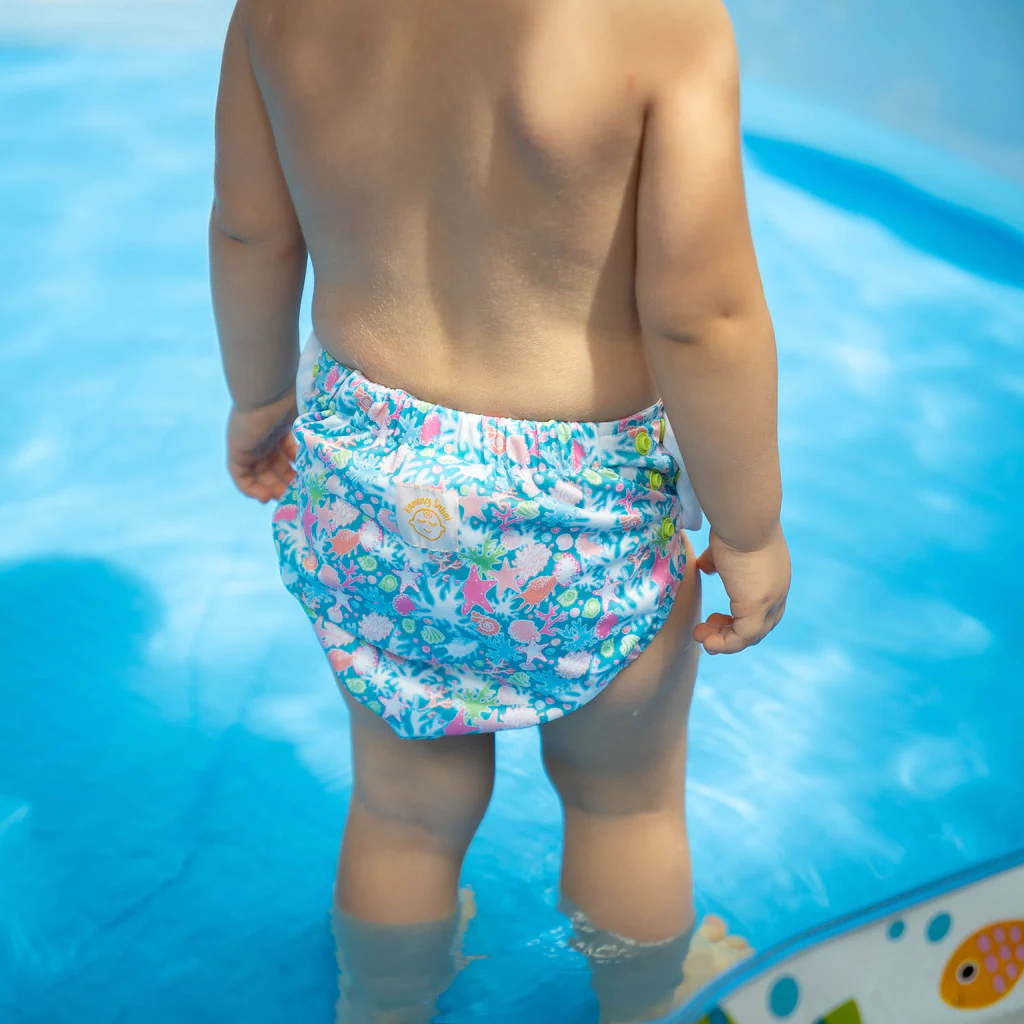
Remember, pool safety is paramount. Always prioritize constant supervision, gradual water introduction, and age-appropriate activities. With the right preparation and equipment, like baby swim diapers, you can embark on a water exploration journey with your baby. From a simple splash to future swimming lessons, these early experiences can cultivate a lifelong love of water and healthy aquatic habits. So, pack your swim essentials, choose the right swim diaper, and get ready to create a splashing success with your little one!

